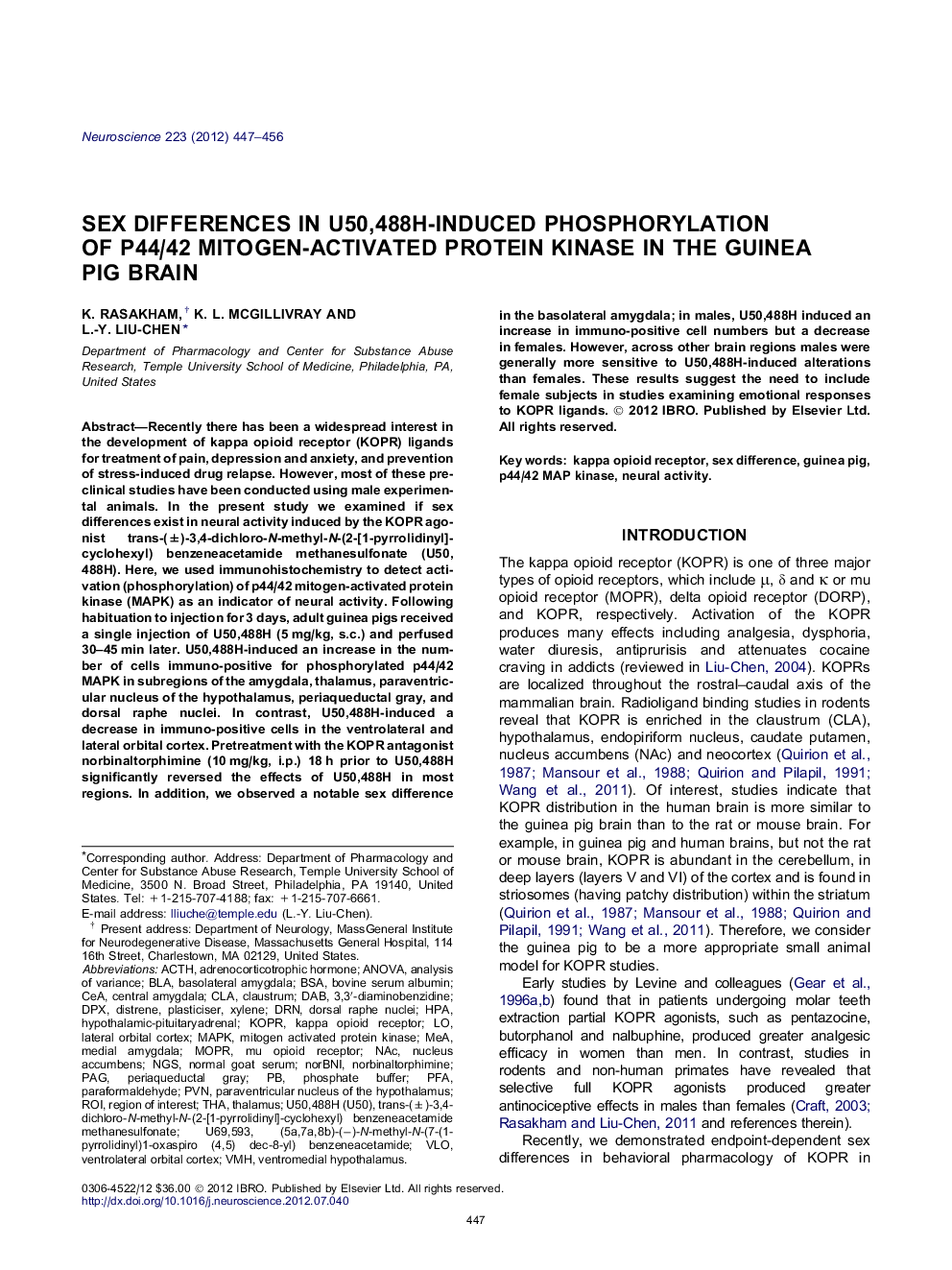| Article ID | Journal | Published Year | Pages | File Type |
|---|---|---|---|---|
| 4338212 | Neuroscience | 2012 | 10 Pages |
Recently there has been a widespread interest in the development of kappa opioid receptor (KOPR) ligands for treatment of pain, depression and anxiety, and prevention of stress-induced drug relapse. However, most of these preclinical studies have been conducted using male experimental animals. In the present study we examined if sex differences exist in neural activity induced by the KOPR agonist trans-(±)-3,4-dichloro-N-methyl-N-(2-[1-pyrrolidinyl]-cyclohexyl) benzeneacetamide methanesulfonate (U50,488H). Here, we used immunohistochemistry to detect activation (phosphorylation) of p44/42 mitogen-activated protein kinase (MAPK) as an indicator of neural activity. Following habituation to injection for 3 days, adult guinea pigs received a single injection of U50,488H (5 mg/kg, s.c.) and perfused 30–45 min later. U50,488H-induced an increase in the number of cells immuno-positive for phosphorylated p44/42 MAPK in subregions of the amygdala, thalamus, paraventricular nucleus of the hypothalamus, periaqueductal gray, and dorsal raphe nuclei. In contrast, U50,488H-induced a decrease in immuno-positive cells in the ventrolateral and lateral orbital cortex. Pretreatment with the KOPR antagonist norbinaltorphimine (10 mg/kg, i.p.) 18 h prior to U50,488H significantly reversed the effects of U50,488H in most regions. In addition, we observed a notable sex difference in the basolateral amygdala; in males, U50,488H induced an increase in immuno-positive cell numbers but a decrease in females. However, across other brain regions males were generally more sensitive to U50,488H-induced alterations than females. These results suggest the need to include female subjects in studies examining emotional responses to KOPR ligands.
► Kappa opioid agonist U50,488H alters p44/42 MAPK activity in the guinea pig. ► Males generally show greater changes induced by U50,488H than females. ► Pretreatment with norBNI antagonized the effects of U50,488H in most brain regions. ► In basolateral amygdala, U50 increased P-MAPK in males but reduced it in females. ► These results highlight the need to include females in kappa opioid studies.
